This post may contain affiliate links. Read my privacy policy.
February is Heart Health Month and oats have a stellar reputation for their heart health benefit. Do you know the difference between each variety of oats?
Fiber’s role in heart health
Dietary fiber can help improve blood cholesterol levels and lower your risk of heart disease, stroke, obesity and even type 2 diabetes.
The American Heart Association recommends that at least half of the grains you eat be whole grains. Eating whole grains (like oats) are consistently associated with a reduced risk of chronic disease, including cardiovascular disease. Whole grain oats and oat bran can help lower blood cholesterol thanks to the power of beta-glucan – a soluble fiber, largely unique to oats, that basically tells your liver to pull LDL cholesterol out of the blood. Then, it binds to some of the cholesterol in your gut, keeping it from ever reaching your bloodstream.
You head to the grocery store to pick up oats, and there are so many options. Steel-cut oats, rolled oats, old-fashioned oats – what’s the difference?
Steel Cut Oats
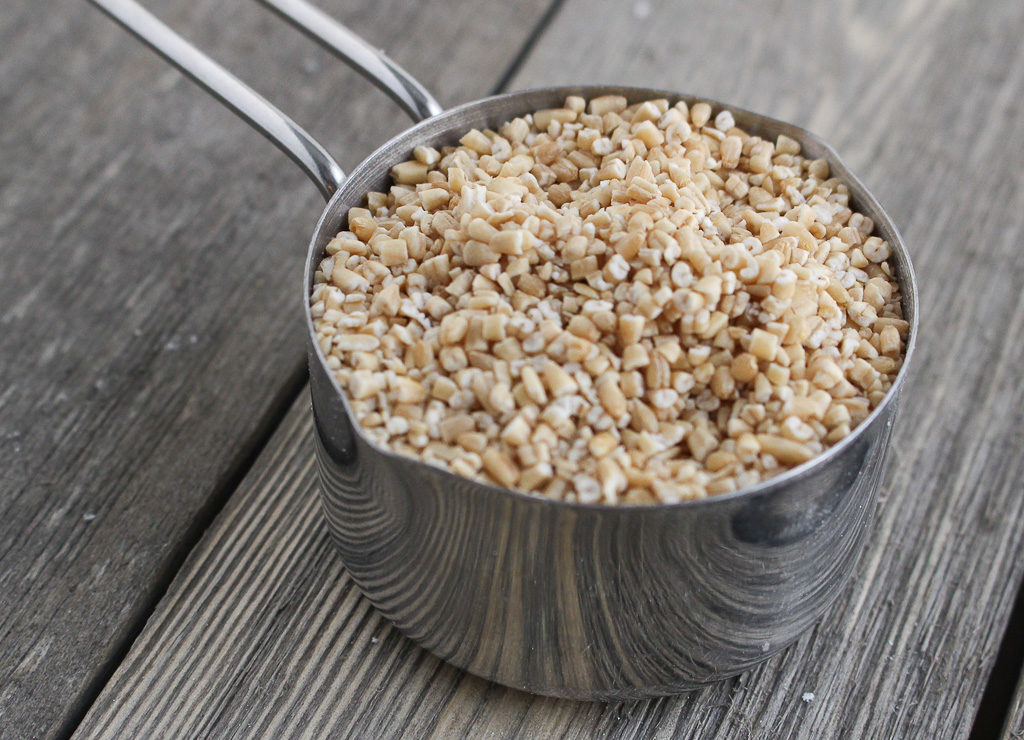
Steel-cut oats, also known as Irish or Scottish oats, are oats that are processed by chopping the whole oat groat into several pieces. This type of oatmeal takes the longest to cook. Why? Because the outside layer of the whole grain, the bran, is fully intact. A longer cook time penetrates through the bran creating tender, yet a chewy texture that retains much of its shape even after cooking.
Don’t have time in the morning to cook steel-cut oats? I don’t blame you! Prepare them in advance by cooking them over the stovetop, in a crockpot, or Instant Pot. Or try my frozen muffin tin method.
Get the recipe: Frozen (Single Serving) Pumpkin Steel Cut Oatmeal
Rolled Oats
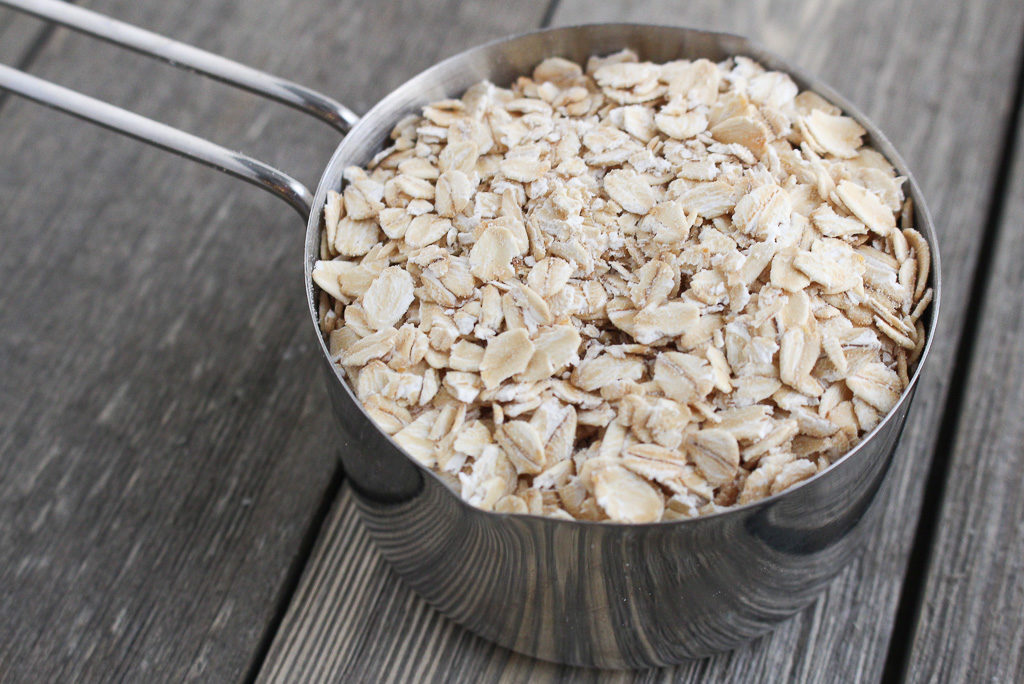
Rolled oats, also known as old-fashioned oats, are created when oat groats are steamed and then rolled into flakes. This process stabilizes the healthy oils in the oats, so they stay fresh longer, and helps the oats cook faster, by creating a greater surface area.
Rolled oats cook faster than steel-cut oats. They absorb more liquid and hold their shape well during cooking. With their faster cook time, enjoy a bowl of warm oatmeal in the morning or use in recipes like muffins, granola, pancakes, or other baked good recipes.
Get the recipe: Quinoa Oatmeal with Berries
Quick Oats
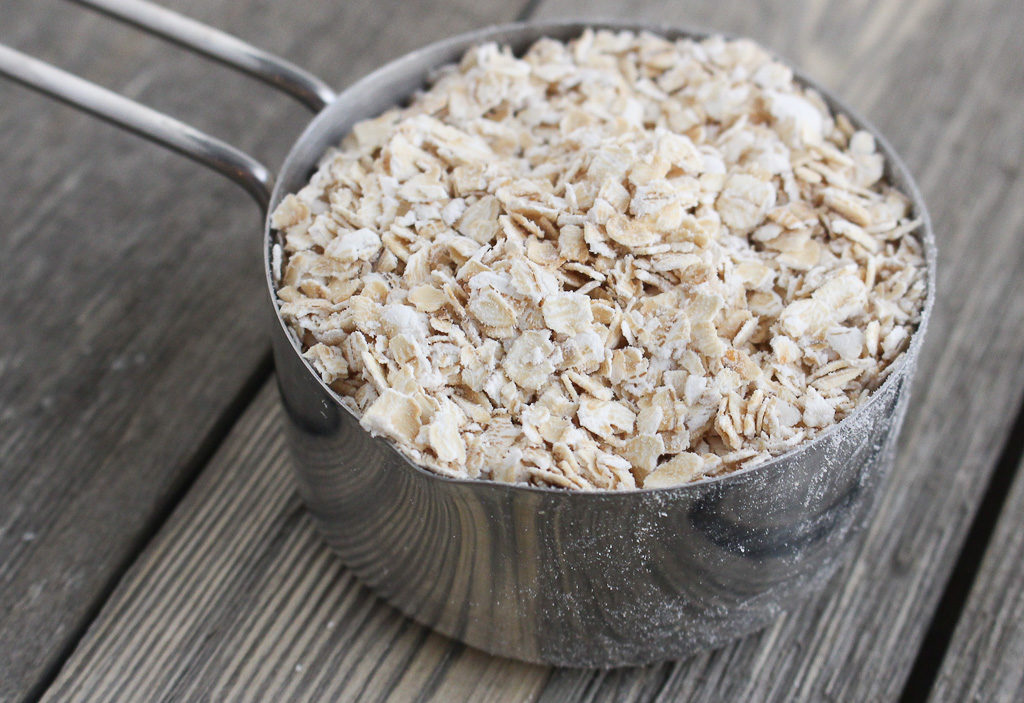
Quick oats, also known as minute oats or instant oats are rolled oats and that are steamed for even longer. As the most processed type of oat, instant oatmeal cooks in seconds and has a smooth, creamy, and soft consistency and mild flavor.
Quick cook more quickly than steel-cut or rolled oats, but retain less of their texture, and often cook up mushy. Plus, be mindful of the multiple varieties of quick oats in the shelf. Tip: Opt for the quick oats in the canister vs. the individual packets. Not only will you save money, but often the packets contain disodium phosphate (aka. salt), to help them swell even faster in the microwave, whereas the canister contains just the oats. Additionally, the packets contain added sugar, if choosing the flavored varieties.
Get the recipe: Apple Pie Overnight Oats
New Research
Consuming uncooked oats, like overnight oats that are soaked in milk or yogurt to soften, contain
The John Hopkins Patient Guide to Diabetes notes that “When starches are digested they typically break down into glucose. Because resistant starch is not digested in the small intestine, it doesn’t raise glucose. Gut health is improved as fermentation in the large intestine makes more good bacteria and less bad bacteria in the gut. Healthy gut bacteria can improve glycemic control. Other benefits of resistant starch include increased feeling of fullness, treatment and prevention of constipation, decrease in cholesterol, and lower risk of colon cancer. Resistant starch is fermented slowly so it causes less gas than other fibers.”
This post may contain affiliate links. To find out more information, please read my disclosure statement.

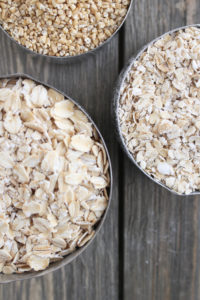
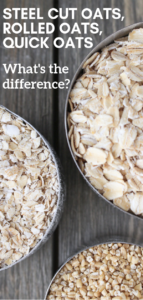
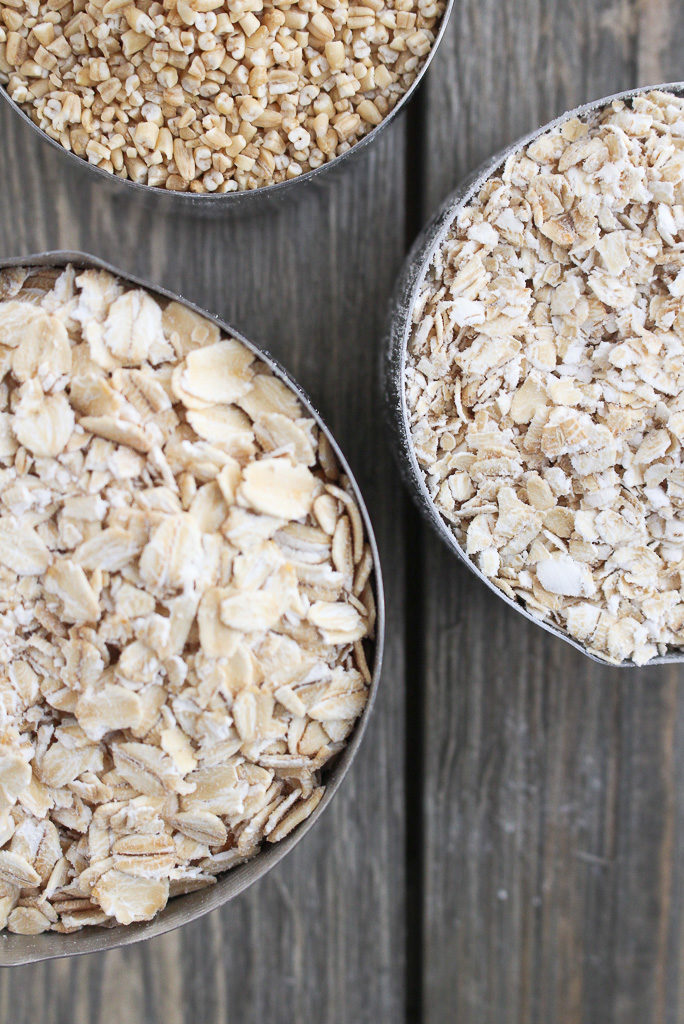
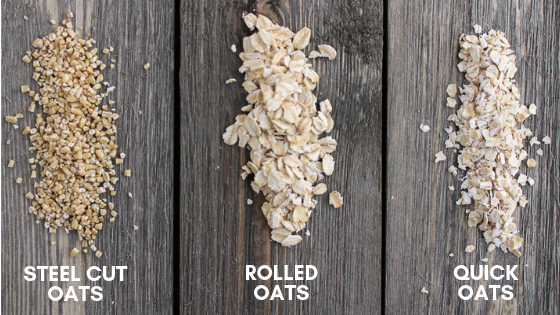
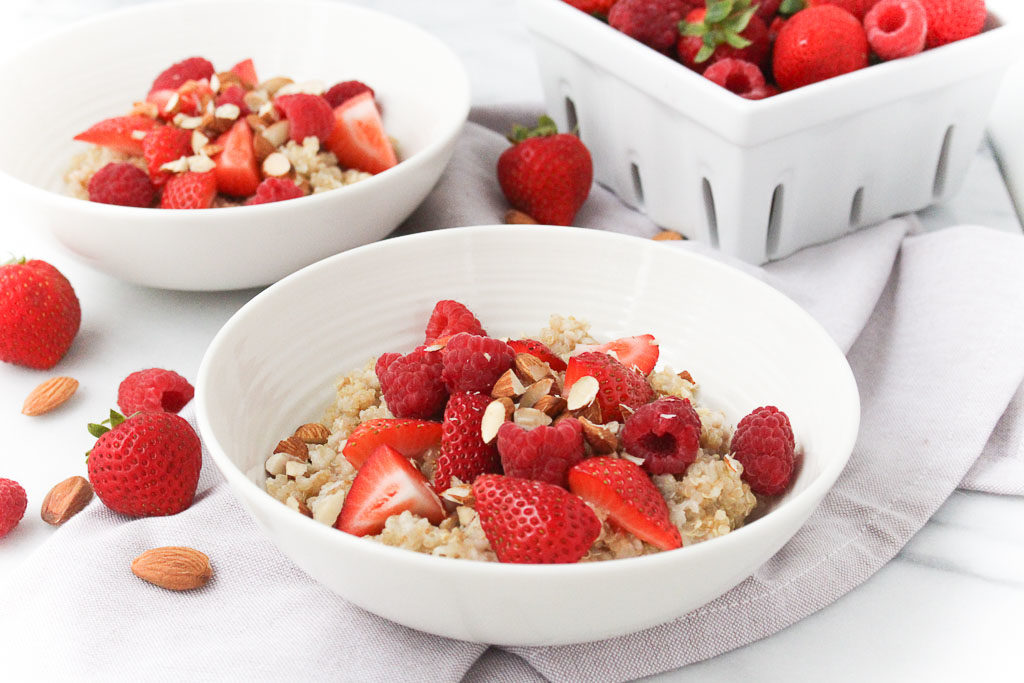
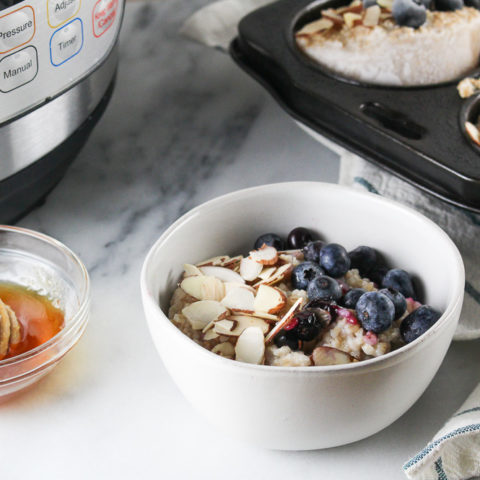
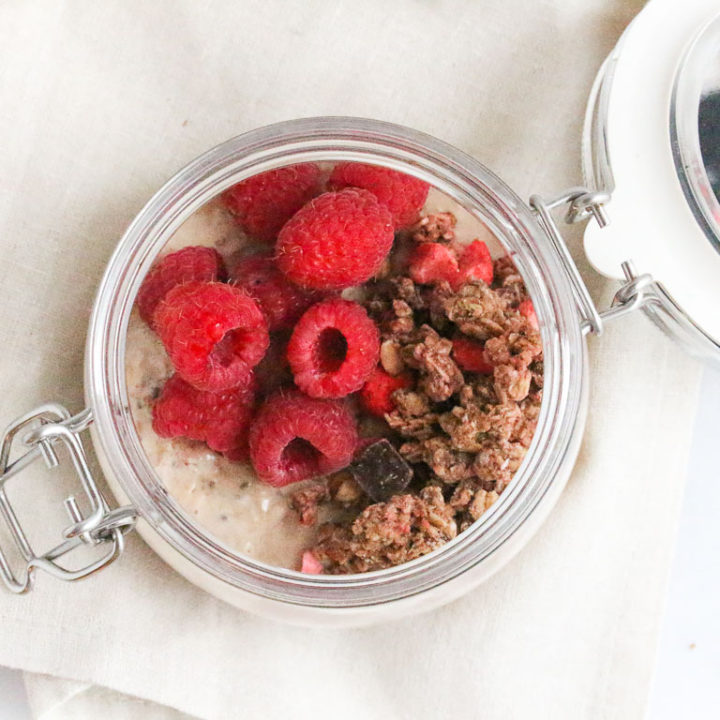
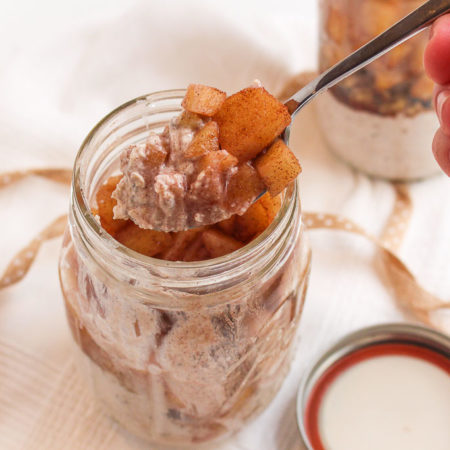




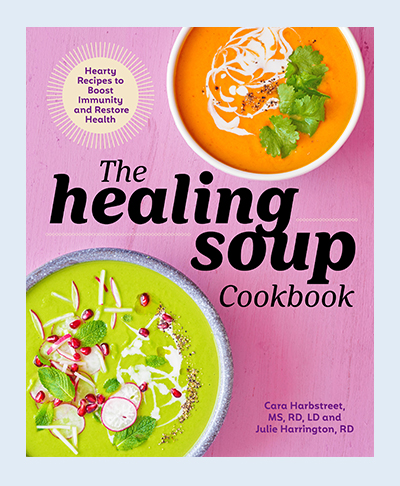
Pingback: Grocery Store Finds: February 2019 - Chef Julie Harrington, RD
Pingback: Oat Flour Pancakes + The Secret(s) to Creating Fluffy Pancakes Everytime